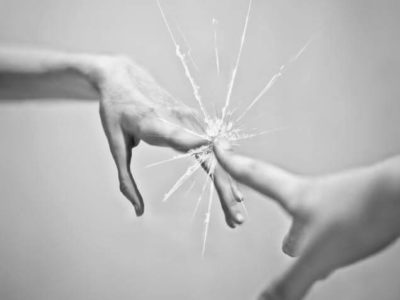Sometimes, college got us all like (in our inner DMX voice), “Y’all gon’ make me lose my mind up in here, up in here!” We’re here to work, but work never comes without his trusty sidekick—stress—whose only superpower is making us feel as if our mental states are deteriorating. Sooner or later we get to a point where we either want to go Hulk or go home. (Maybe both if you’re the type who needs a good rampage before crying home to momma.) Sometimes college gets too real too fast, and we’re persistently scrambling to keep up and prove how strong we are.
Painting on this perfect image of having it all together causes our true selves to fall apart within us. There’s no time to salvage the pieces. We’re too busy striving to meet the expectations of others. Everything we are starts slipping away and our health begins to suffer. It feels like we’re alone, but everyone is struggling. We’ve all just learned to hide it well; it’s how we survive. This isn’t the life we want to live, but we can’t let anybody know that.
Marisha Fortner, Associate Professional Specialist and a health educator and practitioner at the University of Notre Dame says that this is called “the disconnect,” and it is a prominent problem of college students. She explains that, “There is a ‘standard’ of what healthy is supposed to look and feel like, with a checklist of guidelines to follow. Students are trying to fit in this mold and finding it’s not achievable, doesn’t feel right for them, or is not getting results. This gap between reality and what it’s ‘supposed to be’ or what they’re ‘supposed to do’ creates internal discord that feels like an endless cycle with little hope of change.”
We must remember what we are here for. Don’t let the dreams of others become your own. But how do you do that? “The first step would be to eliminate ‘should’ and ‘supposed to’ from their language and create an internal dialogue that communicates more to their individual needs,” Fortner said. Stick with your day-one goals and approach them in a way that feels good for the you that you’re trying to hide.
The perfect student? That person is only a figment of the adolescent imagination, so there’s no reason to play make-believe with everyone and put on the costume and mask to please them. Just be as you are.
Another issue with the disconnect is that we forget we need to look after our health. We’re going on four hours of sleep, a couple of granola bars and whatever else is cheap and fast. When the weekends arrive, our blood becomes alcohol and stress makes extra room for his homies, A.K.A. bad decisions.
When Monday returns, bad decisions thank stress for the stay and guilt comes to take their place. Guilt is loud and proud, pushing us to the point where we just can’t deal. “There are so many standards, guidelines, expectations and information available that it gets overwhelming and confusing,” Fortner said. “This results in giving up, not being able to live up to unrealistic expectations and even when doing something right it often feels like it’s not enough. The cycle results in guilt, which never acts as a long term motivator.”
Mistakes are as constant as breathing, and we cannot take sips from the “I’m not good enough” punch; it’s laced with poison. We’ll make mistakes and we’ll feel bad about it, but that doesn’t mean that we need to take five steps back when we’ve already taken so many forward. We don’t push forward because we need to prove something or make up for previous errors. We push forward because we can. We have somewhere to go, and we’ll get there even when tripping over our own two feet.
Being brave enough to look at ourselves unashamedly is how we avoid the disconnect. We know our own hearts and minds better than anyone else so only we can build our individual version of success. Fortner recommends examining values and finding time in the day to do something that makes you absurdly happy, even if you can only spare a few minutes. “When we’re happier and feel like we have control in our day–and perception of it–we make better choices. This works with anyone: Pick a door, crack it open and see what’s on the other side. Just pick a door that interests you and can be done with current schedules.” Life is 79.9 percent choices, 10.1 percent fate (whether you believe in it or not) and 10 percent random B.S. We have to make the right decisions because they matter the most. If that power is relinquished to other people, then it’s no longer your own life.
We must keep in touch with our own minds, hearts, bodies and souls because we decide our own happiness. No matter how out of control life seems to get, we are the ones who hold the reins to slow it down and guide it on the path we have chosen. We’ll earn some scars as we find our way, but that’s part of the reward for living. As long as we live from the inside and not for the outside, there’s no way we’ll lose our connection.



















